I have a simple Flask api where I'm trying to construct a class based on the request json body. Its important that the requests are independent from each other.
However, I've found that the requests are not independent of each other.
The first request I make to the api works as expected:

But an interesting thing happens when I make another request!

Somehow bob the builder is persisting between requests and living in the allStoreManagers variable.
Can someone help me figure out why this is happening?
Code Link (its only 3 files, don't worry)
Python Version: Python 3.8
Dependencies: Flask
Files:
api.py
from flask import Flask, request
api = Flask(__name__)
@api.route("/create_store", methods=["POST"])
def tbd():
from furniture_class import FancyFurnitureStore
kwargs = request.json
my_store = FancyFurnitureStore(**kwargs)
return my_store.to_dict()
if __name__ == "__main__":
api.run(host="127.0.0.1", port=8080, debug=True)
furniture_class.py
class FancyFurnitureStore:
def __init__(
self,
storeManager: str,
allStoreManagers: dict = {},
version: int = 1,
**kwargs,
):
self.version = version
self.storeManager = storeManager
# allStoreManagers should initialize to {} every time right??
self.allStoreManagers = allStoreManagers
if str(self.version) not in self.allStoreManagers.keys():
self.allStoreManagers[str(self.version)] = self.storeManager
def to_dict(self):
return self.__dict__
Final thoughts:
- If I don't put the class in a separate file and keep everything on api.py, the requests are independent from each other. Weird. Why would putting the class in a different file cause problems?
- The allStoreManagers variable is somehow not defaulting to
{}and instead has the dictionary of the first request in it. Restarting the api clears the variable but it just gets stuck again on the subsequent request.